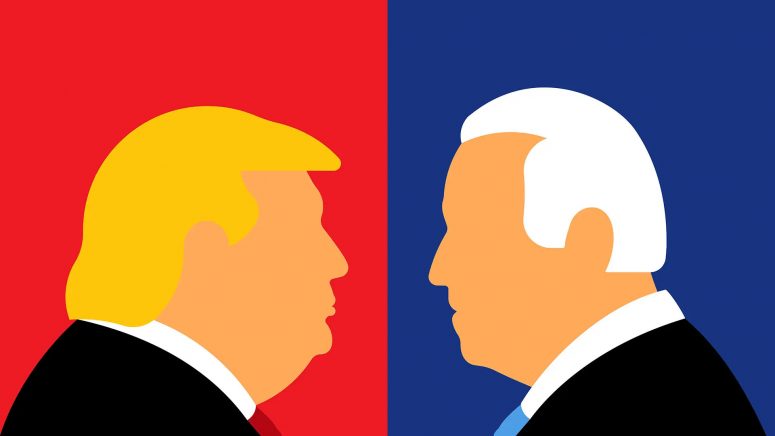
Courtesy Shutterstock
This year democracy is facing extinction. America is at stake. If we elect the wrong president, the nation will likely die. Overnight. Call it, “Decision 2024: End of Democracy Edition.”
Sound familiar?
Every four years, Americans are patronized by fear-mongering media and desperate politicians with this blasé rhetoric. “This is the most important election ever,” they say. “Of our lifetimes! In the history of the universe!”
Ironically, the phrase has been slyly used since Lincoln’s second election in the late 1800s. It’s basically a hyperbolic trick to attract attention, sell more advertising, and mobilize voters. Continue reading…
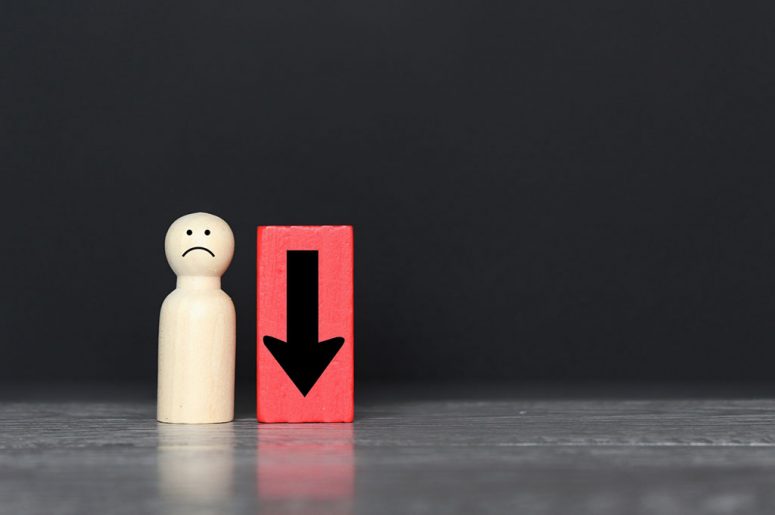
Courtesy Shutterstock
Statistically speaking, the world has drastically improved in recent centuries. We live in a measurable (albeit imperfect) Golden Age—never has there been a better time to be born, regardless of gender, race, religion, economic class, and 99% of nationalities.
And yet, most people think morality is in rapid decline, according to new research by Adam Mastroianni. After studying half a million humans, Mastroianni cites two causes for this: biased exposure and biased memory. The first is how people pay more attention to negative news, which journalism disproportionately publishes in order to increase advertising revenue. The second means the outrages of yesterday don’t seem so outrageous today (even though they are).
In short, media bias and our brains have tricked us into thinking everything is worse. As Mastroianni writes, “If you think that morality is declining, then you must think that some switch has been flipped in society, causing it to produce worse humans. No doubt you would want to un-flip that switch, whatever you think it is: smash the social media companies! Kill all the politicians! Ban the bad books! None of that is going to reverse the trend, because the trend doesn’t exist. It’s like activating the sprinkler system in a building that’s not on fire.”
This realization is both refreshing and frightening. In the meantime, let’s not “fix” anything until we verify that it’s actually broken.
See also: Does accepting (or celebrating) social progress hinder future progress?

Courtesy Shutterstock
I was recently talking to an ultra-liberal friend who admitted that today is a better time to be born than any other time in history, regardless of race, gender, and let’s say 99% of nationalities. While the world is far from perfect, it is a better place for the greatest number of people. That includes higher life expectancies, education, and literacy rates, and remarkably less death, disease, poverty, war, crime, dictators, and injustices.
Nevertheless, this same friend expressed fear that acknowledging said progress might encourage conservative society to stop making progress. I argued that most conservatives have made social progress, albeit slower than liberals, since forever (especially since the industrial revelation). Furthermore, there’s no evidence suggesting that conservatives will suddenly stop once a tolerable threshold of social equality has been reached. And yet I suspect this liberal fear exists in more than just my friend.
I don’t know the exact number, but I do know many outspoken liberals feel the need to qualify any acceptant that the world has gotten better. They almost always couch it with, “Yeah, but we still have a long way to go!” I sense many of them share this fear that by acknowledging our social progress, we’ll suddenly stop perfecting the other flawed areas of social inequality.
To get to the bottom of what I believe is an unfounded fear, I interviewed several people on the subject. This is what I learned. Continue reading…
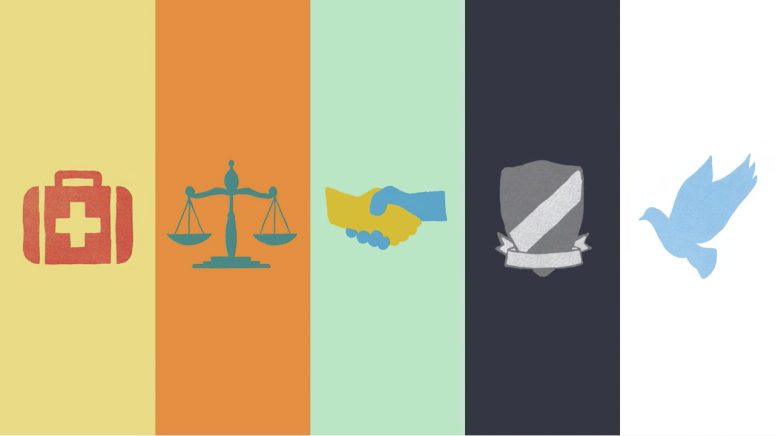
The majority of presidential elections in my lifetime have been determined by little more than 1% of the total vote (roughly 50/50). Regardless of who wins, I always hear the same thing: “The other half of the country is stupid and doesn’t get it.” Which is a stupid, ignorant thing to say.
That’s because when someone disagrees with how you want to govern others, what they’re really doing is valuing different things, regardless if they live in a big city or rural community.
More specifically, researchers have found that humans universally value the following five morals: harm, fairness, loyalty, traditionally authority, and purity. Liberals largely value only harm and fairness. Conservatives value all five about equally in the middle. Libertarians value all five equally, albeit on low levels of all five.
Those values determine whether you’re a liberal, conservative, or libertarian—all of which are inaccurate labels, by the way. Liberals should really be called “People who only care about harm and fairness,” but admittedly that doesn’t roll off the tongue. Conservatives really should be called “People who are slow to change because they want want to value it all,” and libertarians are “You’re on your own, whether you’re a winner or loser in this unfair world.”
It’s interesting to note how values change over time. For example, a liberal living in the ’80s wouldn’t have thought twice about where his tomato was grown or what diet the piece of beef sitting in front of him was raised on. Nowadays, “food purity” is a huge deal to liberals, almost as much as “sexual purity” is to conservatives, even as the latter is increasingly open and accepting of homosexuals.
The truth of politics, according to philosopher Jonathan Haidt, is that liberals and conservatives aren’t right or wrong. Like yin and yang, night and day, or how each of use can be either financially liberal or conservative at times, these ideologies can and should both work together to preserve the good parts of society while improving deficient areas.
Easier said than done, of course. But as Haidt argues, the sooner we accept moral humility, the sooner we can abandon our own self-righteousness about the human condition. When that happens, we can organize, order, and improve society even more.
 Several years ago, Provo politicians proposed a bond bill to the community to update century-old city schools. The multi-million dollar bond widely passed because the majority of voters agreed with the included line items.
Several years ago, Provo politicians proposed a bond bill to the community to update century-old city schools. The multi-million dollar bond widely passed because the majority of voters agreed with the included line items.
The next year, the other half of the city wanted to update their schools. A second bond was proposed. Only this time, it asked for 40% more money for the same number of schools. Something was fishy. The numbers didn’t add up, despite politicians saying “lumber had gone up.” The community knew it.
Despite manipulative attempts through signs and public speeches that a “vote for yes is a vote for children,” city voters blocked the second bill’s passage. The next year, a revised bond was proposed with much lower costs and tomfoolery. So the community voted in favor of the revised second bond—a vote for both children and honest pricing.
I was proud of my city that day, but only after first telling our local politicians “no.” As in business, if there’s something you don’t like in politics—be it at a local, state, federal, or global level—vote no. And never let melodramatic or manipulate language convince you that “no” means you don’t care about what’s being voted on.
It might actually mean that you care even more and want our politicians to propose even better legislation with the least amount of corruption.
 American politics are a turn off. So I don’t watch 24 hour news. But American politics are also important. Which is why I read candidate bios before casting my vote.
American politics are a turn off. So I don’t watch 24 hour news. But American politics are also important. Which is why I read candidate bios before casting my vote.
As an unaffiliated, independent, business-owning voter living in a conservative state, I typically vote 60% Republican and 40% Democrat in local, state, and federal elections.
To give you an idea of my presidential voting record, I didn’t vote in the 2000 election while living abroad and I didn’t vote in 2004, because I didn’t like either candidate.
President Obama was the first president I actually voted for. He did a good job, but since I like fresh blood and am pro business, I voted Romney in my next election, followed by Clinton as the lesser of two evils last time, and Jo Jorgensen this time (i.e. a vote for good is better than the lesser of two evils). So two no votes, two votes for democrats, one vote for republican, and one vote for libertarian at the federal level. My local and state election record skews slightly more Republican.
As the last fiscally conservative president that actually balanced the federal budget, I think Bill Clinton is the best president of my life time so far. I liked Reagan’s personality, but in hindsight I disliked his turning the former “conservative” party into a big spending, liberal one (i.e. I only like liberal parties so long as there is a conservative party to keep it in check, and vice versa). I didn’t have a strong opinion on the first President Bush. I thought the second President Bush was a well-meaning man surrounding by poor advisers, and I disliked his war on terror.
I like President Obama’s optimism and moderate approach to the presidency, but I disagreed with his signature policy of insuring people rather than improving their actual health. I liked that President Trump has saved me on taxes and how he renegotiated several international treaties. But I dislike his wall approach, his insulting attacks on people he disagrees with, and his total lack of diplomacy. I don’t believe a vote for Trump is a vote for a racist dictator that will ruin the world. But I don’t feel comfortable voting for him either.
As a federalist, I support the electoral college, even at the expense of the popular vote sometimes. I believe in checks and balances and would hate for any party to control both the presidency and both houses of congress. And I think ranked choice voting is the best way to improve the quality of politicians we elect.
Here’s where I stand on the biggest issues put forth by the country’s two largest parties: The Democrats and The Republicans: Continue reading…
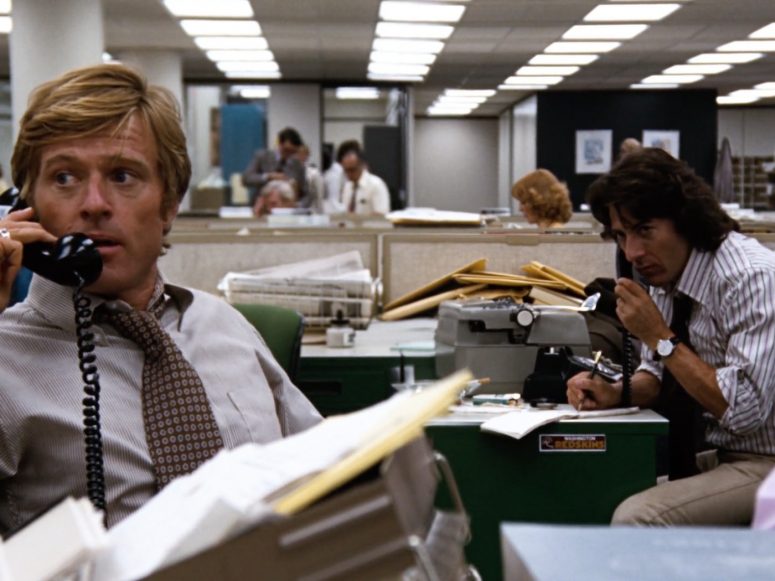
As a working, independent journalist for over 15 years now, I can attest that there is, in fact, a liberal bias in the media. In fact, 37% of journalists identify as liberal, while just 7% as conservative, according to the Washington Post. The rest, myself included, are independent.
Having written for dozens of moderate outlets such as CNN and even Fox News and MSNBC—the most extreme publications for American news bias—I also have a lot of insight into why that is. Here’s why. Continue reading…
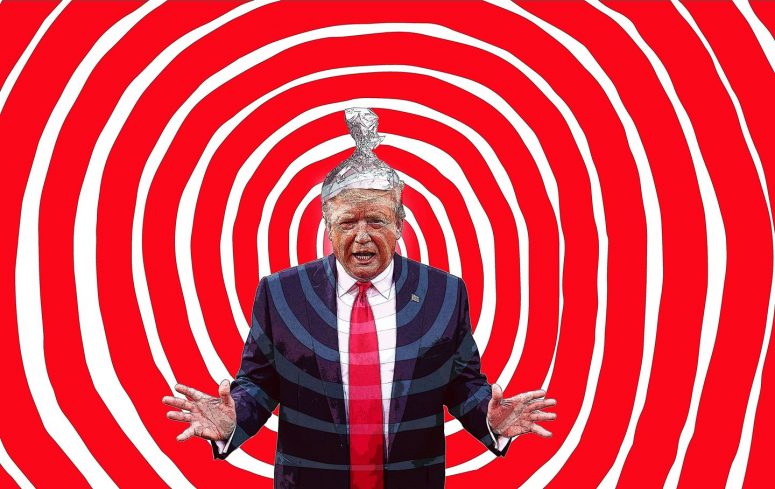
Courtesy Boston Globe
This is a great report by Vice on quitting conspiracy theories. From the article:
“These days, Dave lives differently. ‘Mentally, I’m in a much better place. There isn’t a boogeyman around every corner. The mistrust and paranoia is gone. Some of my former compatriots would compare me to Winston Smith at the end of 1984, but that couldn’t be further from the truth. I am able to trust that 2+2=4. Earthquakes happen, people die, stuff happens. There isn’t always a nefarious plot behind it.'”

Courtesy Paramount Pictures
Divisive presidents, partisan gridlock, identity politics, and fake news are not new, argue the authors of Democracy Despite Itself. In fact, these frustrating problems have been around since America declared independence nearly 250 years ago.
“The history of democracy is a story of ignorant voters making questionable decisions, and unqualified elected officials implementing abysmal policies,” say researchers Danny Oppenheimer and Mike Edwards. “And yet, by every measure of well-being that has ever been studied, citizens of democracies are doing better than any other form of government. We live longer. We have more wealth. We are better educated. We are safer… Yes, inequality, poverty, and crime still exist, but that is true of every society. No society is perfect, but democracies are less imperfect.”
Not only that, but democracies do a better job improving the existing inefficiencies better than other governments, without widespread bloodshed, the authors argue. Like capitalism, democracy has a proven track record of being the most progressive system available to enrich societies.
In other words, don’t throw the baby out with the bathwater!

Courtesy Shutterstock
I was raised on the belief that few things are more American than protesting.
In high school, I successfully protested a high school teacher for saying that I had to stand for the Pledge of Allegiance. Although I was sitting out of laziness, as soon as she told me I “must stand,” I remained seated in legal defiance. The next day after my friend and I failed to stand, she sent us to the principal. After meeting with school officials, it was determined that students didn’t have to stand for the Pledge. So on the third day, our teacher humbly stood in front of our class and said she was wrong and apologized. From then on, my friend and I stood for the Pledge every single day with the utmost respect.
I felt a similar feeling of pride watching “reopen the economy” protesters this spring. I was saddened to them being shamed for protesting nationwide quarantines. There’s never a bad time to protest! If anything, lockdowns are the ideal time to protest.
Recently, I’ve felt equal amounts of pride watching “black lives matter” and “celebrate police” protests. Although seemingly on opposite ends of the political spectrum, I believe both are justified and honorable. As with all complicated issues in life, the truth is somewhere in the middle. Cops are sometimes brutally and deathly racists, and we should try to fix that. But mostly they are good, and they should still be celebrated. Continue reading…

Courtesy Wikimedia
I recently visited Berlin for the first time to commemorate the 30th anniversary since the fall of the wall. While there I took several fascinating tours of this war-torn, politically complex, once divided, but now peaceful capital. (Incidentally, Berlin unexpectedly became one of my favorite European cities—right up there with Rome, Ljubljana, Budapest, and Paris.)
Although I’m usually not a history buff, while touring the capital I was struck by the swiftness of Hitler’s dictatorship, which was as breathtaking and brutal as it was conniving and sabotaging. Upon returning home, I was coincidently introduced to Secret Hitler (a very fun board game), which further piqued my interest in the reviled dictator.
To that end, I downloaded his personal biography (Mein Kampf) and read his entire Wikipedia profile. Here are some of the more interesting facts I’ve learned so far about the most hated villain the world has ever seen: Continue reading…

Before taking office, the vast majority of U.S. presidents were lawyers. President Trump, on the other hand, was a real estate developer, TV star, and hotelier of 14 properties—some of which by name-only.
One of those properties is Trump Waikiki. On a recent trip to Oahu I stayed there because at the time of booking and during my stay, Trump Waikiki was the number one rated hotel out of 84 in Honolulu, according to TripAdvisor.
That alone piqued my interest, as did the political novelty. But the real reason is because I was being hosted by the hotel in the hopes that I would write about it. And here we are. Not because I was contractually obligated to. In my capacity as a travel writer, I never guarantee coverage, meaning if I feel something doesn’t deserve your attention—even shiny freebies—I don’t write about it.
Why am writing about this shiny freebie then? Continue reading…
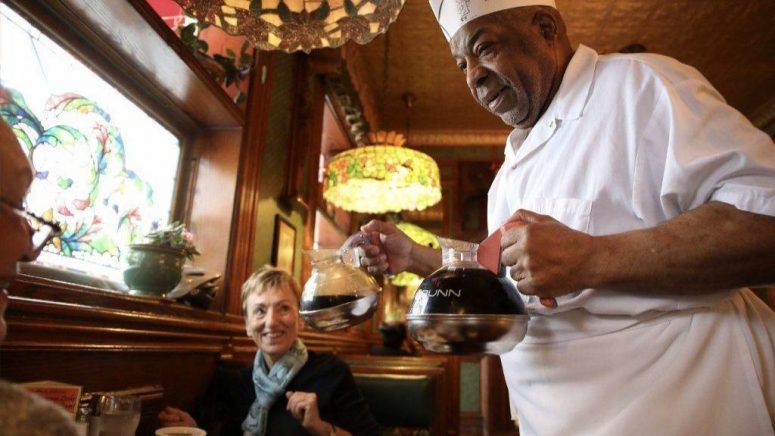
Courtesy Chicago Tribune
I read a thought-provoking story recently about Othea Loggan, a Chicago man who has bussed tables at the same restaurant for 54 years. He still works there today, earning just under $3 more per hour than minimum wage. With tips and annual bonuses, it’s estimated Loggan earns $14 an hour bussing the same tables he has for over five decades.
Unlike most entry-level bussers, Loggan gets five weeks vacation per year and works at a place he seems to really enjoy. Like every other busser, he gets no retirement or health insurance, however.
Despite all of this, Loggan (and his full-time working wife) raised a family, bought a house, and is seemingly happy, or at least he isn’t verbal about expressing any regrets. In fact, his son says as much. “My father is old school — never complains about nothing, never. My mother too. There were times it was hard to get food on the table, and they did not complain. But he got this job, he did it well, held on to it, and there needs to be a lot of respect for someone like that.”
The chef that has worked with Loggan for more than five decades says the same. “I think Loggan just decided to be a busboy. He is content. It’s all he wants. So I ask — isn’t that OK?”
It’s not okay, implies author Chris Borrelli. Continue reading…

Michelle Obama and all others courtesy Platon
Since the turn of the century, Platon has made a name for himself (a single one at that!) for his telling portraits of celebrities, especially politicians. As a fan of his work, these are my favorites: Continue reading…

Courtesy Robert Clark/TIME
“Once the dump trucks and bulldozers have cleared away the rubble and a thousand funeral Masses have been said, once the streets are swept clean of ash and glass and the stores and monuments and airports reopen, once we have begun to explain this to our children and to ourselves, what will we do? What else but build new cathedrals, and if they are bombed, build some more. Because the faith is in the act of building, not the building itself, and no amount of terror can keep us from scraping the sky.”—Nancy Gibbs (written three days after the bombing of the Twin Towers, but before the big holes were “built” in their place)

The United States of America is the mightiest nation the world has ever seen. (Murica!)
Its economy is bigger than the next four national economies combined. Its military spends more than the next 20 nations combined. Its human rights and democracy record are admired throughout the world. And in terms of pop culture, it’s arguably the “coolest” nation on the planet.
So how did the United States achieve all this?
History buff Balaji Viswanathan makes a pretty convincing argument on Quora. Here are his reasons: Continue reading…

I’ve been thinking lately how we can make America great again. And all these shallow thoughts are causing me to overstate things like how the oppressed, poor, and innocent abroad no longer want to come here. Or how the current president is taking the country to hell in a hand basket, just like the last president of an opposing party did.
But I digress. After taking an interest in politics twenty minutes ago, here’s what I’ve come up with. From better loopholes to land deals, and political entrepreneurship to corporate welfare, here are six ways America can better protect life, liberty, and the pursuit of happiness for the rest of us: Continue reading…
 If you listen only to Chicken Little environmentalists, you might think America has done little to help save the planet for future generations.
If you listen only to Chicken Little environmentalists, you might think America has done little to help save the planet for future generations.
On the contrary, the country has contributed quite a bit, experts say. In the last 20 years, U.S. engineers have either improved less sustainable technologies or helped revive previously impotent ones such as wind and solar, says Joel Balbien, managing director at GreenTech Consulting.
“Cheap and powerful silicon has led to enormous energy savings in other sectors of the economy, ranging from vehicles to aircraft and office buildings,” Balbien says.
In fact, America gets a lot more bang for its energy buck now than it did in 1991, and that includes clean fuels such as biodiesel and ethanol blends that “extend fossil fuels and reduce emissions,” said Joey Shepp, sustainable programs director at Dominican University of California.
What that means is the planet can do more with less. It also buys scientists more time to identify and adopt more sustainable energy, as society continues to burn through finite amounts of decomposed dinosaurs (i.e. fossil fuels).
Continue reading…
My heart sank when I read the print edition of this story yesterday. In short, $360 million of U.S. taxpayer money, intended to fund the military, was outsourced to Middle East criminals, terrorists, and even the Taliban, the very organization that money aimed to disrupt.
Here’s how I processed the news.
- I’m thankful to live in a country with a free press and democratic government willing to share such corrupt news. Neither are perfect, but reports like this are proof that there is still good in the world; good enough to let this kind of stuff come to light.
- $360 million is a fraction of total defense spending, and thankfully, as far as we know, much of it still falls in the right hands. Unfortunately, 1/3 of a billion is an incredible amount of money for criminals and mountain-dwelling terrorists intent on building bombs and blowing things up. It’s inexcusable.
- Why can’t the U.S. military enlist cooks, truck drivers, security convoys— virtual everything— from within? You know, like the good ole days, when soldiers worked in mess halls etc. Stop outsourcing our military, and we’ll minimize said corruption.
- Stop awarding closed defense contracts or open contracts to non-U.S. suppliers. What advantage does this bring? I understand President Obama awards contracts to Afghan companies in an effort to stabilize their economy. But is that the purpose of defense spending? Shouldn’t it be defense, not economic development? It’s counterproductive.
- Can we pull out of Afghanistan and Iraq already, Vietnam style? Just do it. I know there are cronies in those countries who don’t want the sugar daddy to leave, but it is high time. Then reinvest half of the savings into intelligence operations to thwart and outsmart terrorism as best we can, as opposed to occupying nations.
Did I miss anything?
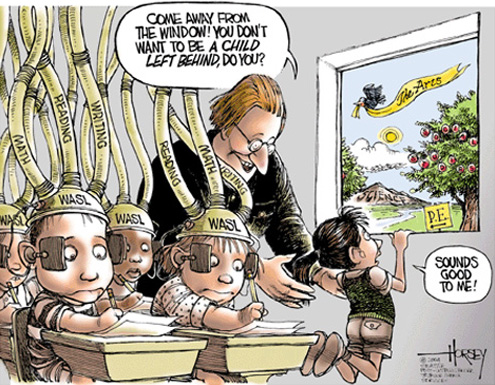 See.
See.
Via The Atlantic:
If The Federal Government’s household income was $55,000 per year, they’d actually be spending $96,500–$41,500 more than they made! That means they’re spending 175% of their annual income! So, in 2011 they’d add $41,500 of debt to their current credit card debt of $366,000!
Yup, it’s as bad as you thought.
Would be interesting to see what Rome’s debt-to-income ratio looked like before they fell.
This is a great essay by Michael Laser on the importance of opposing political viewpoints:
To my amazement, I’ve found that some of my political opposites’ ideas make sense. This doesn’t mean I’ve reversed my thinking, but it’s eye- opening. If you shut out the noise of talk radio and your own unshakable faith, you can find persuasive arguments on both sides of the divide. Here are a few that I came up with:
He then goes on to objectively list seven opposing viewpoints, before concluding with, “Contempt for the opposition may be profitable on talk radio, but it doesn’t help the rest of us. All it accomplishes is to drive people further into their angry, fanatical corners.”
Long live political checks and balances!
 I often use vark.com to impatiently satisfy the many questions in my head. At least the ones I’m too lazy to Google myself. Yesterday’s question was as follows:
I often use vark.com to impatiently satisfy the many questions in my head. At least the ones I’m too lazy to Google myself. Yesterday’s question was as follows:
Are there historical examples of modern democracies successfully reducing the size of their governments, either on a federal, state, or local level?
One guy named New Zealand and “a few Scandinavian countries” without further explanation. Brendan from New York replied:
There are examples of US states that have done it (I think Connecticut trimmed down successfully during the 90s). Also, and this is crucial, there are examples of countries that successfully ensured that the size of government did not grow once all necessary services were in order. Canada is a prime example. It has a sizable government, but it has been excellent at maintaining its size while the Canada population has grown. Its government isn’t bleeding like a lot of European countries are. The key for any government’s solvency is to maintain high revenues. Consider Greece, where $18 Billion in tax revenue went uncollected due to tax evasion. That means that Greece spent $145 Billion, collected $108, and could have collected a crucial $18 B more. If a country can’t effectively collect taxes owed, it’s finished.
So you’re telling me there’s a chance?
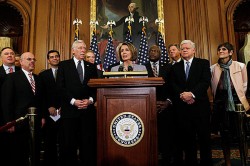 Democrats in the House of Representatives last night approved a controversial healthcare bill, written and approved by Senate democrats in December. The president is expected to sign the bill into law on Tuesday, “then hit the road to sell it to a reluctant public,” reports the Associated Press. Here’s how those in favor of reform have responded to the unpopular bill:
Democrats in the House of Representatives last night approved a controversial healthcare bill, written and approved by Senate democrats in December. The president is expected to sign the bill into law on Tuesday, “then hit the road to sell it to a reluctant public,” reports the Associated Press. Here’s how those in favor of reform have responded to the unpopular bill:
- Why would any damage control be necessary if this bill is so good and will do so many good things? Why did it take a year to pass and why was it passed without any Republican input or votes? How come the people in the party that crafted it needed to be bribed and bought off to vote for it?
- This bill should have been broken into smaller single elements, each being its own bill, then voted on.
- I want reform, but smart reform. Not this.
- The reason we think Washington is dysfunctional is not that nothing gets done, it is because Washington does not listen to those who put them there. Had they scrapped the bill and fixed the things that are broken, no damage control would be needed.
- And how does passing this make Washington functional? They passed it when nobody wanted it (in its form that passed). Wouldn’t that make it dysfunctional?????
- It’s amazing the arrogance of the House to force this atrocious legislation through despite all the public resistance to it. Anyone who voted for it has no business even being elected again.
- Congress ignored the people and now must suffer their wrath in November elections.
Of course, many Americans are elated with the bill, even though most agree it’s “imperfect.” And the bill is a step in the right direction on reigning in ridiculous health insurance policies. But it’s frustrating to see our politicians pass imperfect legislation just to get something passed. Why not wait until we get reform right before passing something? It boggles the mind. Good thing legislation isn’t reversible.





 Several years ago, Provo politicians proposed a bond bill to the community to update century-old city schools. The multi-million dollar bond widely passed because the majority of voters agreed with the included line items.
Several years ago, Provo politicians proposed a bond bill to the community to update century-old city schools. The multi-million dollar bond widely passed because the majority of voters agreed with the included line items. American politics are a turn off. So I don’t watch 24 hour news. But American politics are also important. Which is why I read candidate bios before casting my vote.
American politics are a turn off. So I don’t watch 24 hour news. But American politics are also important. Which is why I read candidate bios before casting my vote.










 If you listen only to Chicken Little environmentalists, you might think America has done little to help save the planet for future generations.
If you listen only to Chicken Little environmentalists, you might think America has done little to help save the planet for future generations.
 I often use
I often use  Democrats in the House of Representatives last night
Democrats in the House of Representatives last night